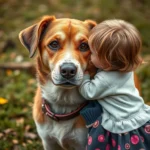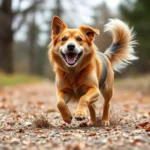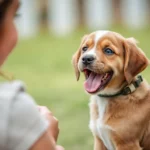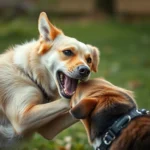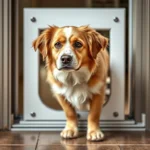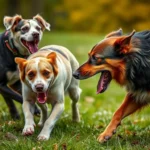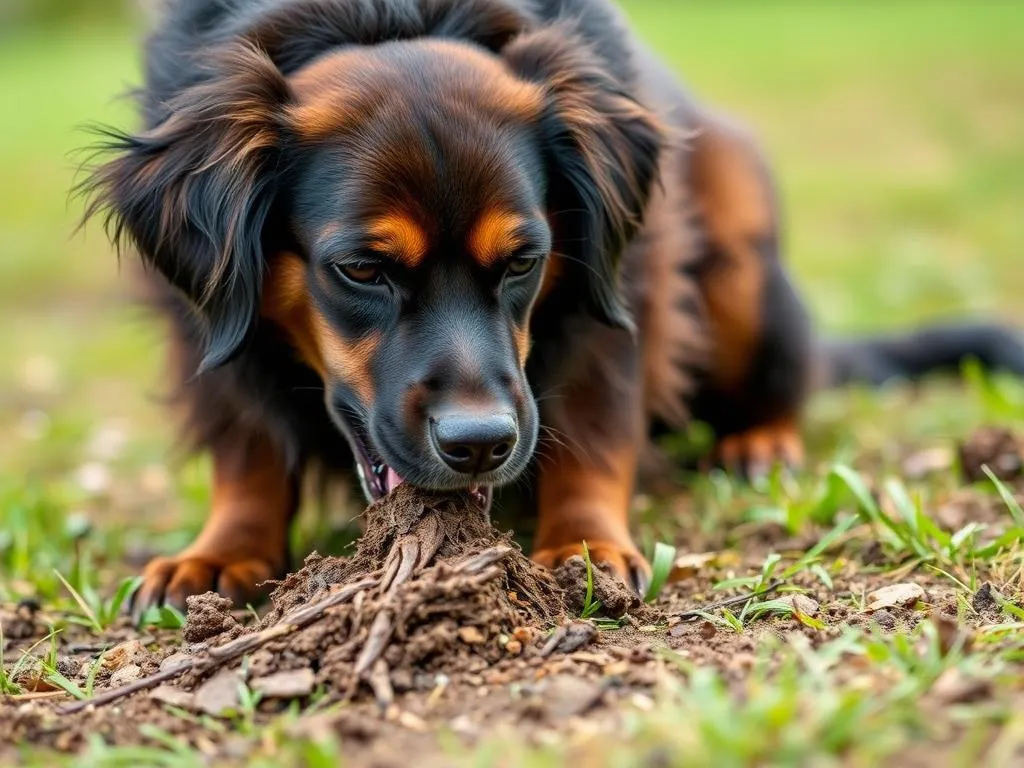
Introduction
Coprophagia, the act of eating feces, is a perplexing behavior that many dog owners face. While it may seem disgusting to us, it is not uncommon among dogs. Understanding why your dog engages in this behavior is crucial for their health and hygiene. Addressing coprophagia not only protects your dog from potential health risks but also fosters a clean living environment. In this article, we will delve into the reasons behind this behavior, assess how to identify triggers, and explore effective training techniques to help you stop a dog from eating poop.
Understanding Coprophagia
Definition of Coprophagia
Coprophagia is derived from the Greek words “kopros” (feces) and “phagein” (to eat). It refers to the consumption of feces by dogs, which can occur with their own stool or that of other animals. There are several misconceptions surrounding this behavior; many people mistakenly believe that dogs eat poop out of spite or defiance. However, the reasons are often more complex and rooted in instinct and health.
Reasons Why Dogs Eat Poop
Instinctual Behavior
Dogs are descendants of wild canines, who often resorted to consuming feces for survival. This behavior served various purposes, such as keeping their dens clean and preventing predators from detecting them through scent. While domesticated dogs don’t need to do this for survival, the instinct may still linger.
Nutritional Deficiencies
Another common reason for coprophagia is nutritional deficiency. If a dog is lacking essential nutrients—such as vitamins, minerals, or enzymes—they may instinctively turn to feces as a way to supplement their diet. This is particularly prevalent in dogs fed a low-quality diet.
Behavioral Issues
Stress, anxiety, and boredom can also lead to coprophagia. Dogs that are left alone for long periods, lack mental stimulation, or experience changes in their environment or routine may resort to eating feces as a coping mechanism.
Attention-Seeking Behavior
Some dogs may engage in coprophagia as a way to get attention from their owners. If a dog learns that eating poop results in a strong reaction—whether positive or negative—they may continue the behavior to elicit that response.
Health Risks Associated with Coprophagia
While the reasons behind coprophagia may vary, the health risks associated with this behavior are significant. Dogs that eat feces can be exposed to various parasites, bacteria, and viruses, which can lead to infections and other health complications. Additionally, consuming feces can disrupt a dog’s digestive health and contribute to long-term issues if left unaddressed.
Assessing the Situation
Observation and Monitoring
Before attempting to stop a dog from eating poop, it’s essential to observe and monitor your dog’s behavior around feces. Take note of when and where your dog is most likely to eat poop, as this information can help identify patterns. Keeping a log can provide valuable insights into the situation.
Identifying Triggers
Identifying triggers for coprophagia is crucial in understanding why your dog engages in this behavior. Common triggers include changes in routine, lack of exercise, or stressful situations. By recognizing specific patterns or situations that lead to the behavior, you can better address the underlying causes.
Consulting with a Veterinarian
Consulting with a veterinarian is an essential step for any dog owner facing coprophagia. A thorough veterinary check-up can help rule out any underlying health issues, such as parasites or nutritional deficiencies. Your veterinarian may conduct tests to identify any potential health problems that could contribute to coprophagia.
Effective Training Techniques to Stop Coprophagia
Positive Reinforcement Training
Positive reinforcement training is an effective way to change your dog’s behavior. This method involves rewarding desired behaviors rather than punishing unwanted ones. For instance, when your dog walks away from feces without engaging, you can praise them or offer a treat. This reinforces the idea that ignoring feces leads to positive outcomes.
Command Training
Teaching your dog commands such as “leave it” or “no” can be instrumental in curbing coprophagia. Consistent practice of these commands during training sessions will help your dog understand what behaviors are acceptable. Use treats and praise to reinforce compliance with these commands, making them more likely to respond.
Redirecting Attention
Redirecting your dog’s attention is another effective strategy. When you notice your dog approaching feces, you can engage them in interactive play or redirect their focus to a toy. Providing mental stimulation through games and training exercises can reduce boredom, making your dog less likely to seek out feces.
Using Deterrents
Applying safe deterrents can also help discourage coprophagia. There are taste aversion products available that make feces unappetizing to dogs. Always consult with your veterinarian before using any deterrents to ensure they are safe and appropriate for your dog.
Modifying the Environment
Cleaning Up Feces Promptly
One of the most effective strategies to stop a dog from eating poop is to clean up feces promptly. This reduces your dog’s access to feces, making it less likely they’ll engage in the behavior. Consider establishing a routine for cleaning up after your dog, and encourage other pet owners in your area to do the same.
Providing Alternative Behaviors
Offering alternative behaviors can keep your dog engaged and reduce the urge to eat feces. Providing a variety of chew toys or puzzles can help distract your dog and keep them occupied. A stimulating environment can significantly reduce boredom, which is often a contributing factor to coprophagia.
Socializing with Other Dogs
Socialization can play a key role in reducing anxiety-related behaviors. Introducing your dog to other dogs in a controlled environment can help alleviate stress and provide opportunities for positive interactions. Look for local dog parks or organized playgroups to facilitate these interactions.
Long-Term Strategies and Maintenance
Consistency in Training
Consistency is key in any training regimen. Maintaining a consistent approach to training will help reinforce desired behaviors in your dog. Regular training sessions should be engaging and varied to keep your dog interested and responsive.
Regular Check-Ups and Monitoring
Ongoing veterinary care is crucial in managing your dog’s health and behavior. Regular check-ups can help identify any potential health issues early on, allowing for timely intervention. Keeping track of your dog’s health and behavior changes can provide valuable insights into their overall well-being.
Adjusting Diet and Nutrition
A balanced diet plays a crucial role in preventing coprophagia. Ensuring your dog is receiving high-quality dog food that meets their nutritional needs can help reduce the likelihood of this behavior. Consult with your veterinarian for recommendations on suitable diets or supplements that can support your dog’s health.
When to Seek Professional Help
Recognizing Persistent Issues
If you find that training and environmental changes aren’t effective, it may be time to seek professional help. Recognizing signs that your dog’s behavior is not improving is essential. Persistent coprophagia can lead to health risks, and a professional can provide guidance tailored to your dog’s specific needs.
Finding the Right Professional
When seeking a professional dog trainer or behaviorist, it’s important to choose someone with the right qualifications and experience. Look for trainers who use positive reinforcement methods and have a good reputation in your community. Prepare a list of questions to ask during the initial consultation to ensure you find a suitable match for your dog’s needs.
Conclusion
Addressing coprophagia in dogs is not just about discouraging an unpleasant behavior; it’s about promoting a healthy lifestyle for your pet. By understanding the reasons behind this behavior, assessing the situation, and implementing effective training techniques, you can successfully stop a dog from eating poop. Remember to be patient and proactive in your approach, and always prioritize your dog’s health and happiness. With time and consistent effort, you can help your dog develop healthier habits and enjoy a clean, safe environment.
